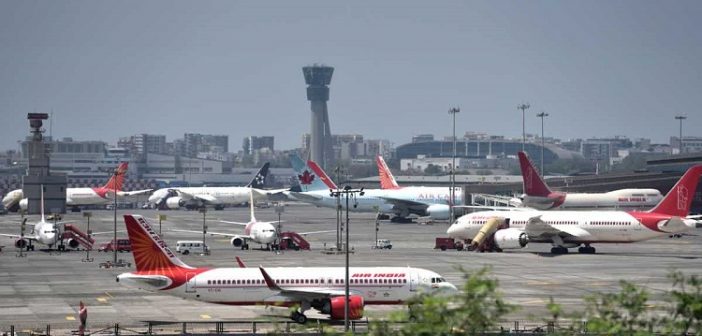In recent months, Indian aviation has faced a wave of bomb hoaxes that have raised alarms across the industry and among passengers. Despite the gravity of these incidents, Indian security agencies have been notably ineffective in addressing this growing menace, exposing a glaring inadequacy in the nation’s security infrastructure. The repercussions of these hoaxes extend beyond mere inconvenience; they have significant economic implications for both domestic and international flights, as well as serious implications for passenger safety and confidence.
The Surge in Bomb Hoaxes
Over the past six months, Indian carriers have been subject to numerous bomb hoaxes, prompting emergency landings, extensive security checks, and heightened alertness among airport staff and passengers. These incidents have caused considerable disruption, with some airlines reporting an uptick in such threats. The number of reported hoaxes has increased by approximately 30% compared to the previous year, highlighting a concerning trend in the aviation sector.
The economic impact of these hoaxes cannot be overstated. Airlines are forced to divert flights, leading to increased operational costs and wasted fuel. Additionally, delays and cancellations disrupt schedules, resulting in lost revenue and damaged reputations. The ripple effect affects ancillary services, such as hotels and transportation, compounding the economic fallout.
The Failures of Security Agencies
The repeated bomb hoaxes raise serious questions about the efficacy of Indian security agencies. Despite the introduction of advanced security protocols post-9/11, the inability to arrest culprits behind these hoaxes reflects a profound failure in threat detection and prevention. Several factors contribute to this ineffectiveness:
1. Resource Constraints
Indian security agencies often operate under significant resource constraints. Limited personnel, inadequate training, and insufficient technological support hinder their ability to respond effectively to bomb threats. The challenge of monitoring a vast network of flights, coupled with the increasing sophistication of potential threats, exacerbates the situation.
2. Lack of Coordination
Coordination among various security agencies remains a significant hurdle. Instances of jurisdictional disputes and lack of communication between state and central agencies have hampered timely investigations. Effective threat response requires seamless cooperation; however, the bureaucratic inertia often leads to delays in addressing emerging threats.
3. Ineffective Intelligence Gathering
The failure to gather actionable intelligence remains a critical gap. Security agencies need to enhance their capability to analyze data and anticipate potential threats. A reactive approach, rather than a proactive one, leaves them one step behind criminals who exploit this weakness.
4. Criminal Motives Behind Hoaxes
Understanding the motivations behind these bomb hoaxes is crucial to addressing the issue. Criminals may engage in such activities for various reasons:
- Monetary Gain: Some hoaxes may be orchestrated to facilitate theft or fraud, distracting security personnel while perpetrators execute their plans.
- Terrorism and Political Statements: In some cases, these hoaxes serve as a means for extremist groups to instill fear and disrupt civil order, even if no actual attack is intended.
- Vandalism and Mischief: There are also instances where individuals, seeking notoriety or amusement, engage in bomb hoaxes without a clear motive. This reckless behavior endangers the lives of innocent passengers and tarnishes the reputation of the aviation sector.
The Passenger Experience
The constant threat of bomb hoaxes has a profound psychological impact on passengers. The anxiety and uncertainty surrounding air travel have increased, leading to a decline in passenger confidence. Many individuals are now reconsidering their travel plans, opting for alternative modes of transportation or avoiding flights altogether. This shift has serious implications for the aviation sector, which relies heavily on passenger volume for revenue.
Moreover, the emotional toll on passengers cannot be overlooked. The fear and distress caused by repeated security alerts create a negative travel experience, undermining the very essence of what air travel should represent: safety and convenience.
Conclusion: A Call to Action
The persistent issue of bomb hoaxes in Indian aviation represents a critical failure on the part of security agencies. As the aviation industry grapples with the economic fallout, it is imperative for authorities to address the root causes of this problem.
Investing in better resources, fostering inter-agency collaboration, enhancing intelligence capabilities, and educating the public about the serious implications of such hoaxes are vital steps toward safeguarding the aviation sector. The safety and well-being of passengers must be the paramount concern of security agencies, and the time for decisive action is now.
As India strives to position itself as a global aviation hub, it cannot afford to let the shadows of incompetence overshadow its skies. The failure to tackle bomb hoaxes not only threatens the aviation industry but also undermines the nation’s commitment to providing safe and secure travel for all its citizens.





